You cannot know
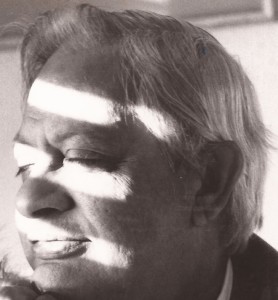
But through the higher forms of meditation you reach a stage where you go beyond the senses. Now, going beyond the senses means that you have not destroyed the senses, you are only going beyond it. If I have a staircase here and climb up to the roof, that does not mean that I have destroyed all the rooms that are below the top of the building. They will remain there. That I have now reached the top of the roof and I would have a greater view of all the senses that are below me. So to reach the highest form of meditation is not the destruction of the senses, the senses will remain. But reaching that higher stage the senses will be guided differently, will have a totally different perspective. And what it would take away from you is the craving, the mother of all miseries.
People suffer in this world because of craving. There are many objects of craving. It does not necessarily mean food that you crave for: lobster dinner or you crave for chicken or turkey or pork chops or whatever. But craving also has so many other forms. You crave for wealth, you crave for relationships, you crave for you name it. Everything is based upon craving. And these cravings are accentuated by the senses and their counterparts. So you lose craving. You lose lust, for example, which is also a craving. You crave for what you want to do. But yet you can do the same thing without craving. Do you see? Then you know that you have reached a step higher.
You can make sensual love, have sensual love with your beloved, and the act would seem the same in divine love, and yet it is the same act. One is filled with craving, animal passion. The other is also filled with passion, but divine passion, where you want to find mergence with the object, with the beloved, so that the object and the subject become one. That is divine love beyond craving. So you still do the same things. Like the old Zen story which I might have told you before, I can’t remember, where the chela asked the Zen master, «What did you do before you became enlightened?» So the Zen master replied, «I chopped wood, I make fire, and I cook food.» «And what do you do now after enlightenment?» So the Zen master replies, «I chop wood, I make fire, and I cook food.»
Same action even after reaching enlightenment. But the action, although it is the same to the ordinary eyes, assumes a great difference to the enlightened one. Before wood was just wood, fire was just fire, and food was just food. But now the wood becomes God, and through the wood fire is made. So the wood is sacrificed to the fire, which is also God, and the food cooked on the fire is also divine, also God. So the wood, the fire, and the food become divine and you see the Divinity. That is when you rise above the senses and become enlightened. Right. So, the wood and the fire and the food assumes a different perspective altogether.
Now, after reaching the highest stage of meditation, you would want to know what happens to me, and how can I know that I am beyond the senses? You cannot know. You cannot know that you have transcended. You can only judge it by comparison to what you regarded a certain object to be before enlightenment, and what that same object seems to you after enlightenment. So the mind would analyze. But when you are beyond the mind, when you have transcended the limitations of the mind and have become limitless, then how can the finite mind ever comprehend that which is infinite? So that knowledge of enlightenment is not confined to the mind, because it cannot be confined, it cannot be imprisoned. So when that stage is reached, nirvana, enlightenment, self‑ realization… self‑realization is when the self realizes itself, and the real self within you is beyond the mind and the senses. So therefore it remains that self and exists in its own power.

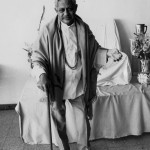
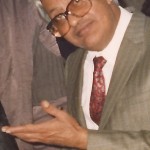
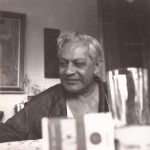

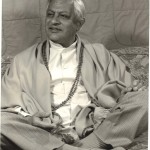
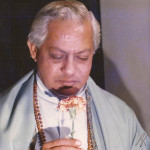
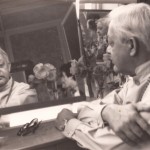
Speak Your Mind